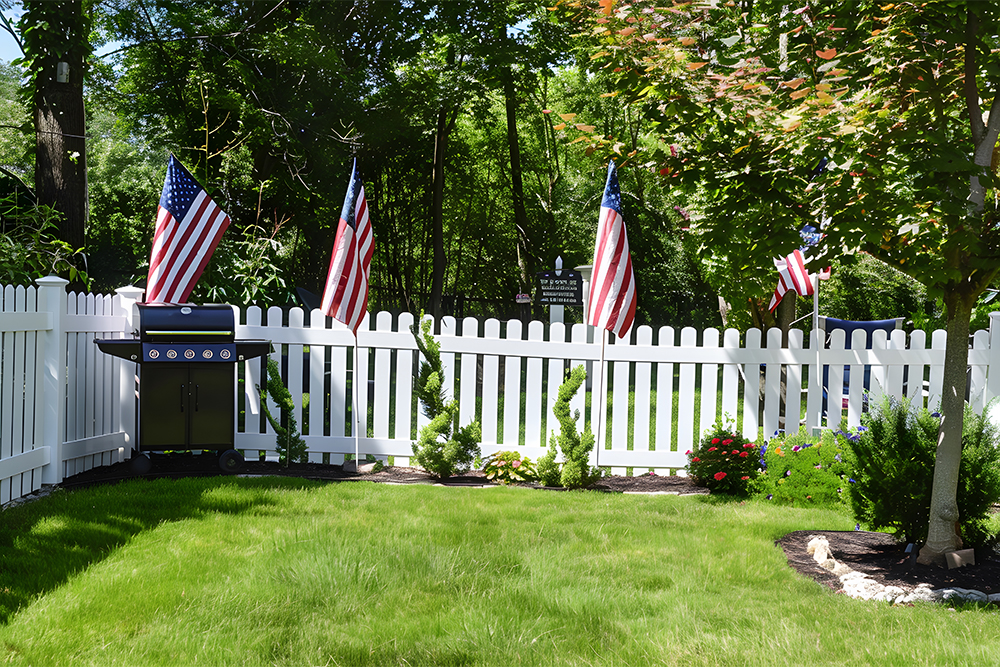The Right Fence for Your Climate

Choosing the right fence isn’t just about picking a style that looks good with your home. It needs to stand up to your local climate, providing durability, functionality, and aesthetic appeal. If you're in Palm Coast, FL, for example, you’ll need a fence that can handle salt air, heavy rains, and intense sunshine without needing constant repairs.
Whether you’re replacing an old fence or building a new one, understanding how different fence materials respond to specific climate conditions is essential. This guide will help you identify the ideal fencing options for your location, ensuring your yard stays secure and beautiful for years to come.
Factors to Consider When Choosing a Fence for Your Climate
Before exploring materials, it’s important to pinpoint the unique environmental factors in your area. Here's what homeowners in different regions should keep in mind:
Weather Conditions
- Rain and Humidity: Frequent rainfall or high humidity can cause some fence materials to rot, warp, or corrode. Wood fences, for example, may not last as long in humid environments unless they are treated for moisture resistance.
- Intense Sunlight: Areas with bright, long summers can take a toll on painted or stained fences, leading to fading and cracking over time.
- Coastal Conditions: If you live near the coast, salt from the ocean air can corrode metal fencing and cause untreated wood to deteriorate quickly.
- Snow and Cold Temperatures: Cold climates with heavy snow can place additional stress on fences, potentially leading to cracks or structural weaknesses in certain materials.
Soil Composition
Did you know your soil type can also affect your fence's longevity? Sandy soils, like those near Palm Coast, FL, might require deeper posts to ensure stability, while clay-rich soils can shift and impact fence alignment over time.
Maintenance Expectations
How much upkeep are you willing to commit? Some fencing materials, such as vinyl, are low-maintenance and ideal for busy homeowners, while others like wood might require regular staining or painting to maintain their appearance and durability.
Local Regulations
Lastly, Florida has specific zoning regulations and height restrictions in many areas. Ensuring your fence complies with local codes is an essential step.
Best Fence Materials for Different Climates
1. Humid and Rainy Climates
Fences in humid environments need extra protection against moisture and mold. Here are some great options:
- Vinyl Fencing: Vinyl is an excellent choice for wet climates because it doesn’t rot, warp, or attract insects. It’s virtually maintenance-free and can withstand heavy rain without losing its structural integrity.
- Pressure-Treated Wood: If you love the classic look of wood, opt for pressure-treated lumber. This enhanced wood is treated with water-resistant chemicals, making it a better choice in humid conditions.
- Aluminum Fencing: While traditional iron fences may rust, aluminum fencing is both lightweight and resistant to corrosion, making it ideal for wet weather.
2. Coastal Areas
Living near the ocean is beautiful but tough on fences. To combat salt air and wind, choose from the following materials:
- PVC Fencing: Similar to vinyl, PVC fencing holds up well in salty, coastal environments. Its resistance to corrosion ensures minimal maintenance.
- Aluminum Fencing with Powder Coating: Aluminum fencing with a durable protective coating will resist both rust and fading in coastal winds.
- Composite Fencing: Made from wood and plastic, composite fences look like natural wood but aren’t susceptible to rotting or salt damage.
3. Hot and Sunny Climates
Intense sun can lead to fading and cracking in some materials. Here’s what works best in sunny regions like Palm Coast:
- Vinyl Fencing with UV Protection: Look for UV-resistant vinyl to prevent fading or discoloration.
- Cedar or Redwood Fences: These woods are naturally more resistant to sun damage and heat exposure compared to other types.
- Metal Fencing: Options such as wrought iron (with proper maintenance) or powder-coated steel can handle the heat while offering a stylish option for yards.
4. Cold and Snowy Climates
Fences in colder climates must withstand snow buildup and freezing conditions. Consider these materials:
- Vinyl Fences with Reinforced Posts: Vinyl reinforced with metal ensures stability in icy conditions.
- Steel Fences: Powder-coated steel provides exceptional durability under heavy snow.
- Wood Fencing with Weatherproofing Treatment: Weatherproofing treatments on wood can help minimize cracking from freeze-thaw cycles.
Why Choose the Right Fence?
Beyond curb appeal, the correct fence material saves you money on repairs and replacements. Selecting a fence that can endure your climate's challenges ensures that you won't need constant maintenance. Plus, your fence will do its job—providing privacy, security, and style—for years to come.
Keeping Your Fence in Top Shape
Even the most durable fence requires occasional care to maintain its integrity, especially in challenging climates like Palm Coast. Here are a few tips:
- Frequent Cleaning: Remove dirt, mold, or mildew to prevent long-term damage, particularly after wet seasons.
- Routine Inspections: Look for cracks, rust, or warping. Addressing issues early can prevent costly repairs down the line.
- Proper Sealing and Staining: For wooden fences, a high-quality sealant or stain can protect against moisture and UV rays.
If your fence is showing signs of wear or damage, it may be time for a professional inspection. Investing in quality repairs now can save you from a full replacement later.
Get Expert Help for Fence Repair in Palm Coast, FL
If you’re a homeowner in Palm Coast, FL, selecting the right fence is crucial to withstand the unique conditions of your area. At Masters Quality Fence, we specialize in professional installations and fence repair services tailored to the Florida climate. Whether you want to upgrade your current fence or need help with repairs, our expert team is here to guide you every step of the way.
Contact us today for a free estimate and protect your yard with a fence built to last.